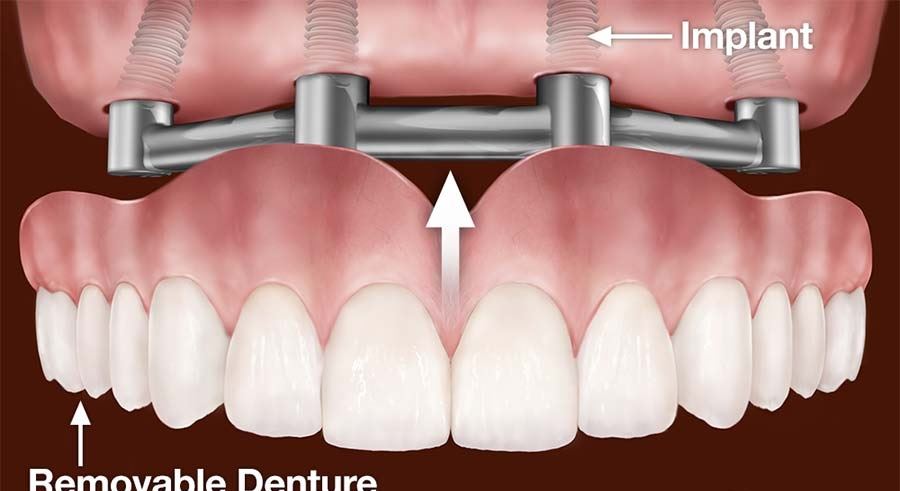Delta Dental is one of the largest dental insurance providers in the United States, offering coverage to millions of individuals and families. Understanding how Delta Dental insurance works can help you make informed decisions about your oral health care and financial planning. This comprehensive guide explores the intricacies of Delta Dental insurance, including coverage options, benefits, costs, and how to maximize your dental care under this plan.
Introduction to Delta Dental Insurance
Delta Dental operates as a network of independent dental service corporations in the United States, providing dental benefits programs to over 80 million Americans. The organization traces its roots back to the mid-1950s when it was founded by dentists in California. Today, Delta Dental plans are available in all 50 states, offering a variety of dental insurance products tailored to meet the diverse needs of individuals, families, and employers.
SEE ALSO: How Does Dual Dental Insurance Work
Types of Delta Dental Plans
Delta Dental offers several types of dental plans, each designed to provide different levels of coverage and flexibility:
Delta Dental Premier: This is a fee-for-service plan that allows you to visit any licensed dentist. Dentists within the Delta Dental Premier network agree to predetermined fees, often resulting in lower out-of-pocket costs for members.
Delta Dental PPO (Preferred Provider Organization): The PPO plan offers a network of dentists who agree to provide services at reduced fees. Members can choose to visit any licensed dentist, but they will typically pay less when they visit a dentist within the Delta Dental PPO network.
DeltaCare USA (DHMO): This is a prepaid plan where members choose a primary care dentist from the DeltaCare USA network. They must receive all dental care from their selected primary dentist, making it a cost-effective option with fixed copayments and no deductibles.
How Delta Dental Insurance Works
Delta Dental insurance functions similarly to other health insurance plans but focuses specifically on dental care. Here’s a step-by-step breakdown of how it works:
1. Enrollment and Coverage Selection
To enroll in Delta Dental insurance, individuals can choose a plan through their employer if offered as a benefit, purchase a plan directly from Delta Dental, or opt for coverage through a government program like Medicaid or Medicare Advantage.
During enrollment, individuals select a plan based on their dental care needs and budget.
2. Membership and ID Cards
Once enrolled, members receive a Delta Dental membership card. This card includes important information such as the member’s name, group number (if applicable), and contact information for Delta Dental customer service. Members present this card at dental visits to confirm their coverage.
3. Dental Provider Network
Delta Dental maintains an extensive network of participating dentists, orthodontists, and specialists across the country.
Members can choose to visit any licensed dentist, but they typically save money by using an in-network provider who has agreed to accept Delta Dental’s approved fees.
4. Coverage and Benefits
Delta Dental insurance covers a wide range of dental services, including preventive care (such as cleanings and exams), basic procedures (like fillings and extractions), and major services (such as crowns and root canals). Coverage details vary by plan type and specific contract terms.
5. Costs and Payment Responsibilities
Members may be responsible for costs such as deductibles, copayments, and coinsurance, depending on their plan.
Deductibles are the amount members must pay out of pocket before Delta Dental begins to cover costs. Copayments are fixed amounts paid at the time of service, while coinsurance represents the percentage of costs shared between Delta Dental and the member.
6. Claims and Reimbursement
When members visit a dentist, the dental office typically submits a claim to Delta Dental on behalf of the patient. Delta Dental processes the claim and determines the covered amount based on the member’s plan and the services rendered.
Members may receive an Explanation of Benefits (EOB) outlining what Delta Dental paid and any remaining member responsibility.
7. Exclusions and Limitations
Like all insurance plans, Delta Dental has exclusions and limitations. These may include services considered cosmetic, orthodontic treatment beyond a certain age, and procedures not deemed medically necessary. Members should review their plan documents carefully to understand what is covered and what is not.
Advantages of Delta Dental Insurance
Delta Dental insurance offers several advantages to members:
Large Network: Access to a vast network of dentists nationwide, providing convenience and choice.
Cost Savings: Lower out-of-pocket costs when using in-network providers or participating in Delta Dental’s negotiated fees.
Comprehensive Coverage: Coverage for preventive, basic, and major dental services, promoting oral health and wellness.
Customer Support: Dedicated customer service for assistance with claims, benefits, and provider network inquiries.
Tips for Maximizing Delta Dental Coverage
To make the most of your Delta Dental insurance:
Choose In-Network Providers: Save money by visiting dentists within the Delta Dental PPO or Premier networks.
Schedule Regular Check-ups: Preventive care is often fully covered, helping to maintain oral health and detect issues early.
Understand Your Plan: Review your plan documents, including coverage details, exclusions, and any cost-sharing responsibilities.
Use Benefits Wisely: Take advantage of covered services like cleanings and exams to minimize out-of-pocket costs over time.
Stay Informed: Keep up-to-date with changes to your plan and network providers to ensure continued coverage and benefits.
Conclusion
Delta Dental insurance provides essential coverage for millions of Americans, offering flexibility, affordability, and access to quality dental care. By understanding how Delta Dental insurance works and leveraging its benefits, individuals and families can prioritize oral health without financial strain. Whether through employer-sponsored plans, direct enrollment, or government programs, Delta Dental continues to play a crucial role in promoting dental wellness across the United States.

